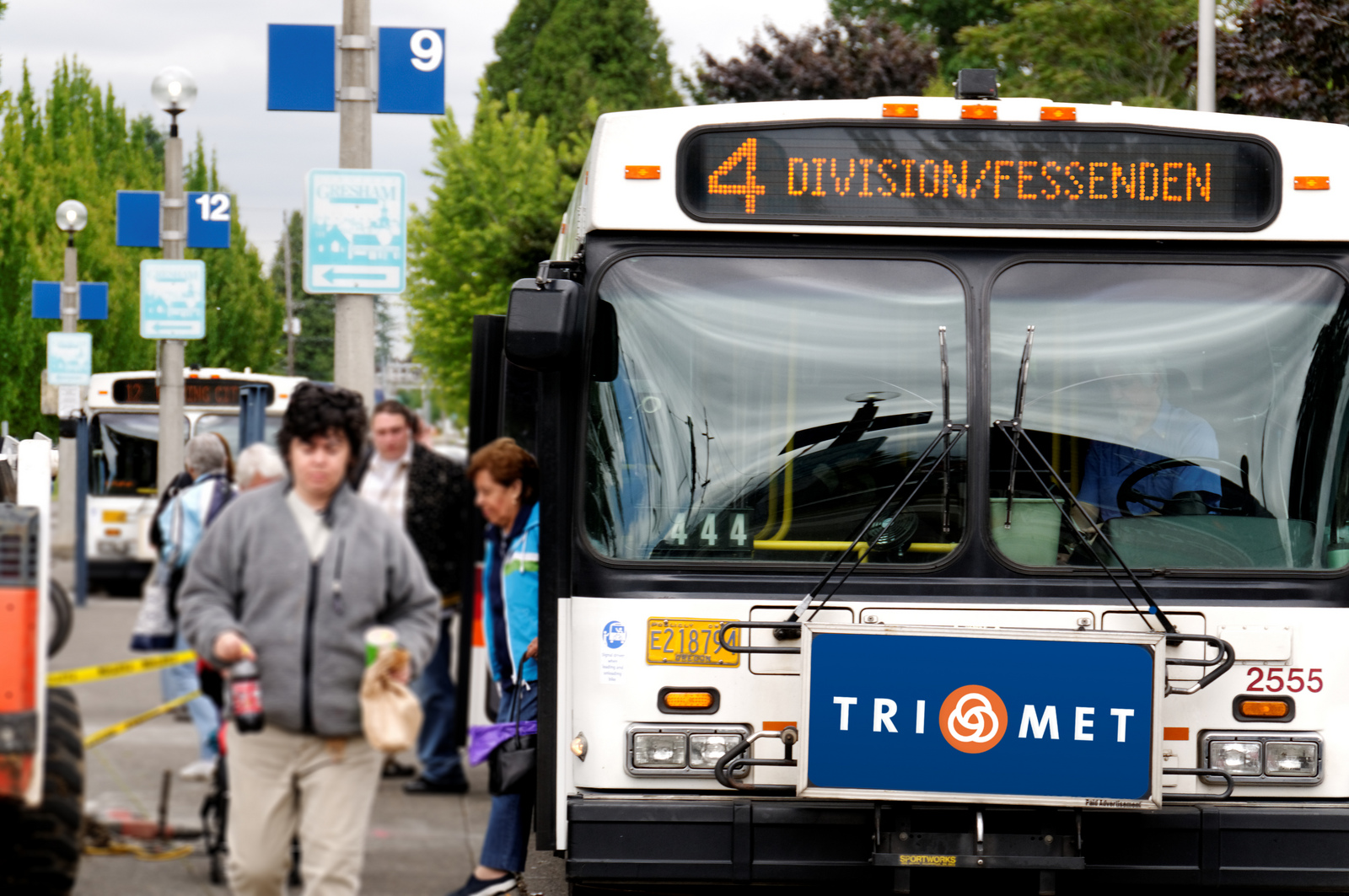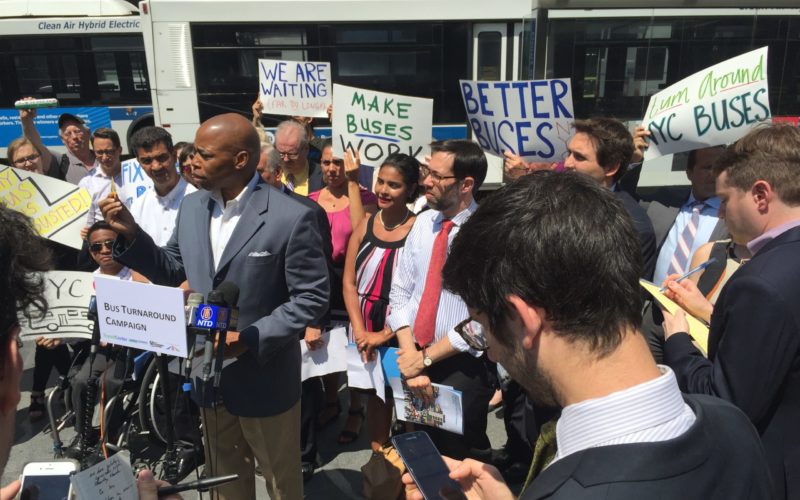
In May, we launched a new blog series by TransitCenter program associate Julia Ehrman about diversity, representation, and equity of opportunity in transit institutions. Where the first piece documented the unrepresentative qualities of several specific transit boards, here Julia recounts a rare advocacy battle waged in Portland, OR over selection of a transit agency CEO.
In February of 2018, TriMet’s board appointed Doug Kelsey as the agency’s new CEO. But the choice of Kelsey – a white, male, transit industry veteran – was not universally celebrated. In fact, Portland’s Amalgamated Transit Union Local 757 and OPAL Environmental Justice Oregon (OPAL), a grassroots transportation justice campaign, led a campaign in opposition to Kelsey’s hiring. These groups, who advocate for more geographically equitable transit service, a more progressive fare structure and improved accountability and engagement from TriMet, demanded a leader who would fight for the priorities of riders and workers. They said they feared Kelsey represented a continuation of a “broken status quo” at TriMet.
Kelsey joined TriMet as the agency’s first COO in 2015. When previous CEO Neil McFarlane resigned in 2017, the TriMet board of directors hired a private firm to conduct a national search. Kelsey was the only candidate who advanced to the final round. This January, OPAL released a letter signed by elected officials, advocacy groups, business owners, and labor organizations, calling for a halt to what they felt was hasty and secretive hiring. They condemned the agency for a recruitment process that “[did] not show leadership that involves voices of directly impacted communities; instead [it] demonstrates a pattern of disengagement from stakeholders and community.” The TriMet Board of Directors temporarily delayed the process for a few weeks but then went ahead with its original choice.
Critics pinpointed the agency’s lack of community engagement to inform CEO hiring criteria, and questioned whether women and people of color had been seriously considered for the position. They explicitly linked criticism of the hiring process to a lack of vision for the agency, and pointed to the urgent need for change. OPAL and ATU pointed to declining ridership, poor relations between management and labor, and low-quality service in riding communities as a testament to the need for a sea change at TriMet. They argued Kelsey’s appointment represented a missed opportunity to appoint a leader with a stronger connection and track record of advocacy for transit riding communities and workers.
TriMet sought to counter the arguments, issuing a press release describing a “community outreach-guided hiring process” and an extensive process of soliciting input from stakeholders to shape the executive search. The agency also posted the criteria used to evaluate the candidates and the rationale for selecting Kelsey.
In spite of failing to derail Kelsey’s selection, the groups’ campaign has not been fruitless. TriMet’s website now identifies diversity, inclusion, and community engagement as agency priorities. Kelsey issued a list of commitments for his first four months, which are now coming to a close. These include a “listening tour” around TriMet’s seven districts; hiring a staff member dedicated to outreach in low-income and “historically underrepresented and vulnerable communities”; working with community organizations to ease the transition from paper tickets to Hop cards (including providing 20,000 free Hop cards to low income and “vulnerable” people). Trimet is also expanding its Transit Equity Advisory Committee to include more representatives from organizations that serve transit riders. The advisory committee’s charge seems ambitious — encompassing workforce diversity as well as safety and enforcement initiatives. Kelsey has committed to assessing and closing diversity and pay gaps among staff over the next three years.
These initiatives indicate a possibility of internal reform, and a new cohort of board members may bring new values to TriMet’s leadership. But what about the transit service and access issues that make up the meat of advocates’ concerns? Since Kelsey’s appointment, TriMet has committed to expanding bus service this year and will continue to partially fund a discounted transit pass for low-income students in Multnomah County, though funding remains subject to annual appropriation.
It remains to be seen whether these initiatives will lead to an equitable service and investment strategy that can address residential displacement of low-income residents and falling ridership at Trimst. While the CEO struggle is now over, ongoing public debate and the direction of transit advocacy in Portland bear watching by transit supporters and institutions across the country.
 On the Brink: Will WMATA’s Progress Be Erased by 2024?
On the Brink: Will WMATA’s Progress Be Erased by 2024?
The experience of being a WMATA rider has substantially improved over the last 18 months, thanks to changes the agency has made like adding off-peak service and simplifying fares. Things are about to get even better with the launch of all-door boarding later this fall, overnight bus service on some lines starting in December, and an ambitious plan to redesign the Metrobus network. But all of this could go away by July 1, 2024.
Read More A Bus Agenda for New York City Mayor Eric Adams
A Bus Agenda for New York City Mayor Eric Adams
To create the “state-of-the-art bus transit system” of his campaign platform, Mayor Adams will have to both expand the quantity and improve the quality of bus lanes. We recommend these strategies to get it done.
Read More